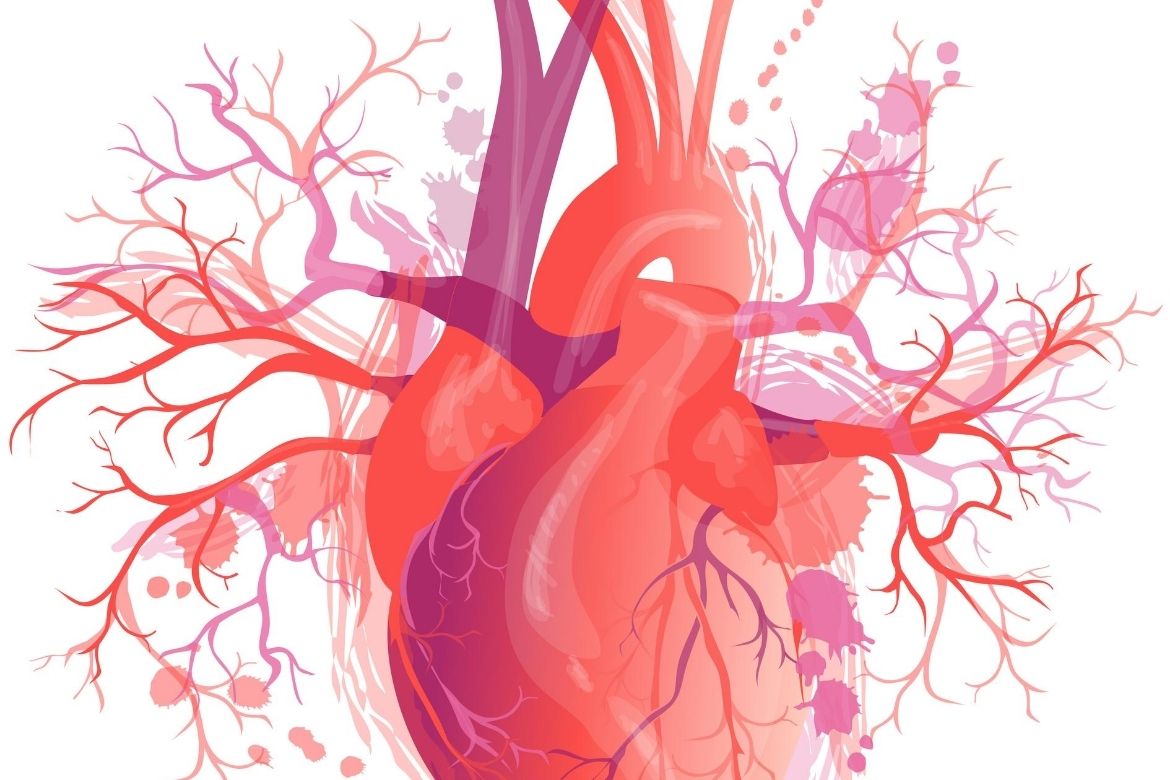Overview
Heart diseases are a group of certain conditions related to the heart. It includes problems with the heart muscles, blood vessels, the valves, or heartbeats, and cardiomyopathy, atrial fibrillation, and heart failure. Often unhealthy diet, diabetes, sedentary lifestyle, lack of exercise, stress, high blood pressure, obesity, high cholesterol, infections, birth defects, and smoking lead to heart disease. Many of us are aware of these common risk factors that put us at increased risk for heart disease. But there are several surprising or uncommon risk factors for heart diseases. Below are unconventional factors to watch for that could lead to heart issues:
Also Read:- Best Breakfast Before Gym For Weight Gain
- Undiagnosed Sleep Apnea
Sleep apnea is a condition where sometimes breathing stops during sleep. Obstructive sleep apnea occurs due to the complete or partial obstruction of the airways. It is often associated with snoring, daytime fatigue, and obesity. Central sleep apnea occurs when the brain doesn’t send the proper signal to the muscles that control breathing. The common link between these two types of sleep apnea is a lack of oxygen during sleep. If left undiagnosed, this can lead to high blood pressure (a risk factor for heart disease) or heart rhythm irregularities such as atrial fibrillation. If you are experiencing symptoms of sleep apnea such as trouble in breathing at night, snoring, gasping for air, or restlessness, consider having a sleep evaluation.

- Getting the Flu
A recent study has found a surprising association between influenza and heart attack. If you get the flu, you have a higher risk of having cardiac problems such as heart attack or strokes since influenza may cause inflammation in the body, triggering plaque rupture. A person is six times more likely to have a heart attack in the week after having the flu than before and after they had the flu. Make it a priority to get a flu shot every year.
Also Read:- How Do I Avoid Heart Disease with Heredity
- Eating Habits
Eating habits, including skipping breakfast and late-night meals, can lead to high blood pressure, obesity, high cholesterol, and diabetes. Pay attention to your eating habits, including what you eat and when you eat to decrease the chances of developing risk factors associated with heart disease.
- Deficiency of Vitamin D
Studies have shown a link between Vitamin D and cardiovascular disease. Research has revealed that vitamin D can lower blood pressure by curbing the activity of the renin-angiotensin-aldosterone system. It is necessary for regulating blood volume and vascular resistance. Vitamin D prevents tissue scarring in the heart, blood clots, and reduces the effects of diabetes. Foods that are high in vitamin D include salmon, canned tuna, egg yolks, fortified milk, cereals, and oatmeal. Spending time in the sun is a better way to get your daily dose of vitamin D. A simple blood test can help determine if you have a vitamin D deficiency.

- Genetics and Lifestyle
Having a family history of heart diseases or bad genes can double the risk of heart disease. Nothing can be done to change the bad genes, but healthy lifestyle choices such as diet, exercise, no smoking, and no drinking can cut the risk in half. On the other side, an unhealthy lifestyle destroys the benefits of good genetics. The worst scenario is an unfavorable lifestyle, and bad genes are likely to increase the risk four times to develop heart disease.
Also Read:-Role Of Women In The Family!
- Migraine
You are more likely to have a stroke, chest pain, and heart attack when you get migraines, especially with auras. If heart disease runs in your family or you have had heart problems or a stroke, you should not take ‘triptans’ for your migraines because it narrows blood vessels. Check with the doctor about the best way to control and treat headaches.
- Noise
We all are suffering from the noise of modern life, maybe it is the sounds of traffic, the pings of cell phones, or the hum of the electrical appliances in our homes. They hardly seem worthy of notice. Yet research has shown that every 10-decibel increase in noise in our environment causes a stress reaction that increases the risk of heart disease and stroke. At around 55 decibels, noise can raise your blood pressure and hence the risk of a heart attack. It depends on how your body reacts to stress.
- Being Short
For every 3 inches less than average height, the chance of heart disease goes up about 7%. Shorter people tend to have higher levels of cholesterol and triglycerides. The ways the human body controls height, bad LDL cholesterol, and triglycerides overlap somehow. It is believed that being shorter leads to less-healthy choices and habits.
- Long working hours
People who work at least 55 hours per week may have a high risk of heart disease than those who work 35-40 hours. It could be the result of several things such as stress, lack of activity, smoking, and drinking. It is necessary to take care if you stay late to avoid heart diseases and stroke.
Also Read:-Easiest Tips to Beat Weight Gain
- The altitude
People living at high altitude places (between 458 meters and 2,300 meters) have a low risk of developing metabolic syndromes (a cluster of heart-disease risk factors such as high blood pressure, high cholesterol, and obesity) than those who live at sea level. The less amount of oxygen in the air at higher altitudes may help the heart and lungs function efficiently.
- Binge-watching
There is little harm in occasionally streaming back-to-back episodes of your favorite show. If your lifestyle is all about sitting continuously for hours then you could be setting yourself up for heart trouble. The prolonged sedentary time is an independent risk factor for heart attack and stroke. Inactivity is bad for you. It causes blood clots. While binging, you might end up snacking on junk food or drinking alcohol. Add these risks to the existing concerns such as genetics or obesity and you are starting to tip the scales against you.
- Loneliness
People who are less active socially or who feel lonely had a 25 percent higher risk of heart disease and a 30 percent higher risk of stroke compared to socially active people. On the flip side, those who lived with a partner were 28 percent less likely to die from ischemic heart disease than those who lived alone. Loneliness or the stress of being alone can cause inflammation in the body that creates the conditions that can lead to depression or heart disease.

- Blood type A, B or AB
According to a study, people with type A, B, or AB blood have a slightly higher risk of heart disease compared to those with type O blood. Type A blood boosted the risk by five percent, type B by 10 percent, and type AB by 21 percent. Type O blood may flow better and clot less. Other blood types are may be higher in bad cholesterol.
- Early menopause
Women who go through menopause early, before the age of 46, have double the odds of heart attack or stroke compared to those who experience menopause when they are older. The women in the early-menopause group were also more likely to have other risk factors such as high BMI, diabetes, and a history of smoking. It suggests that doctors can consider the age of menopause an important health clue for heart ailments.
